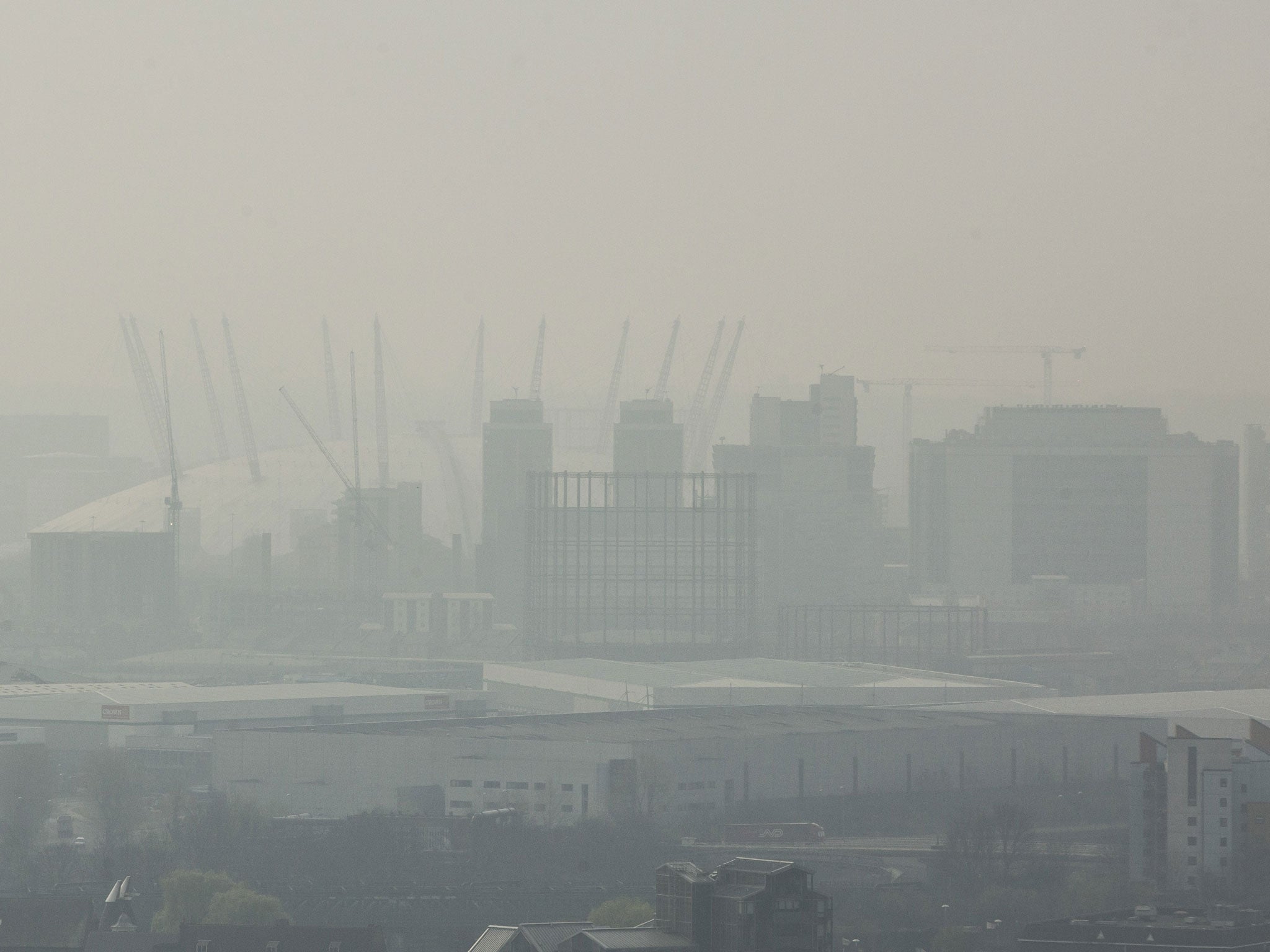Air pollution linked to one in 12 deaths in London – and it takes six months off the average Briton's life expectancy
Report finds pollutants linked to one in 12 deaths in parts of London every year

Your support helps us to tell the story
From reproductive rights to climate change to Big Tech, The Independent is on the ground when the story is developing. Whether it's investigating the financials of Elon Musk's pro-Trump PAC or producing our latest documentary, 'The A Word', which shines a light on the American women fighting for reproductive rights, we know how important it is to parse out the facts from the messaging.
At such a critical moment in US history, we need reporters on the ground. Your donation allows us to keep sending journalists to speak to both sides of the story.
The Independent is trusted by Americans across the entire political spectrum. And unlike many other quality news outlets, we choose not to lock Americans out of our reporting and analysis with paywalls. We believe quality journalism should be available to everyone, paid for by those who can afford it.
Your support makes all the difference.Pollution shortens the average Briton’s life expectancy by six months, with 1 in 12 deaths in some areas of the country partly attributable to poor quality air, health officials have said.
In the most comprehensive warning yet over the health burden of pollutants in the air we breathe, Public Health England (PHE) has calculated the impact on the local population in every UK local authority area.
The report found that pollutants contribute to 29,000 deaths in the UK a year, and the average British citizen has their life expectancy shortened by six months because of long-term exposure to pollutants caused by car exhausts, industry and domestic energy use.
While rural areas fare well, city-dwellers are badly affected and in some parts of London as many as one in 12 deaths can be partly attributed to the effects of particle air pollution.
Their warning comes a week after widespread smog sparked health warnings and led to spikes in ambulance calls for respiratory conditions. However, the new figures refer to long-term exposure rather than any extreme events such as last week’s unusually high pollution levels.
They are based on scientific models of the average concentration of air pollution in a given area, compared to the number of deaths in a single year.
Air pollution is never the single cause of death, rather it is a factor which can exacerbate underlying health problems, including respiratory illnesses like asthma or COPD, as well as cardiovascular conditions.
The proportion of deaths in which air pollution played a part varied widely across the UK, from only 2.5 per cent in rural areas of Scotland and Northern Ireland, between three and five per cent in Wales, but were as high as eight per cent in some London boroughs. Residents of the north London borough of Barnet and Bromley in the south-east had the highest likelihood of dying from a condition exacerbated by air pollution, with estimates suggesting that more than 160 deaths per year could be attributed to air pollution in each of the boroughs.
Dr Sotiris Vardoulakis, PHE's head of air pollution and climate change said that the advice meant that people living in high pollution areas should be aware of their heightened risk of respiratory and cardiovascular disease.
“Mortality related to air pollution is substantial – there is a significant burden on public health, which can be compared to burdens like tobacco smoking, or alcohol use,” he told The Independent.
“People who are suffering from asthma are sensitive, they might see an exacerbation of their condition, but pollution affects the whole population,” he added. “It might be a contributory factor in many deaths – most of them due to cardiovascular and respiratory conditions. It’s not like carbon monoxide poisoning or road accidents, it’s not the sole factor causing a death – it’s a factor that adds to other underlying problems, exacerbates conditions and accelerates the course of the disease.”
Join our commenting forum
Join thought-provoking conversations, follow other Independent readers and see their replies
Comments